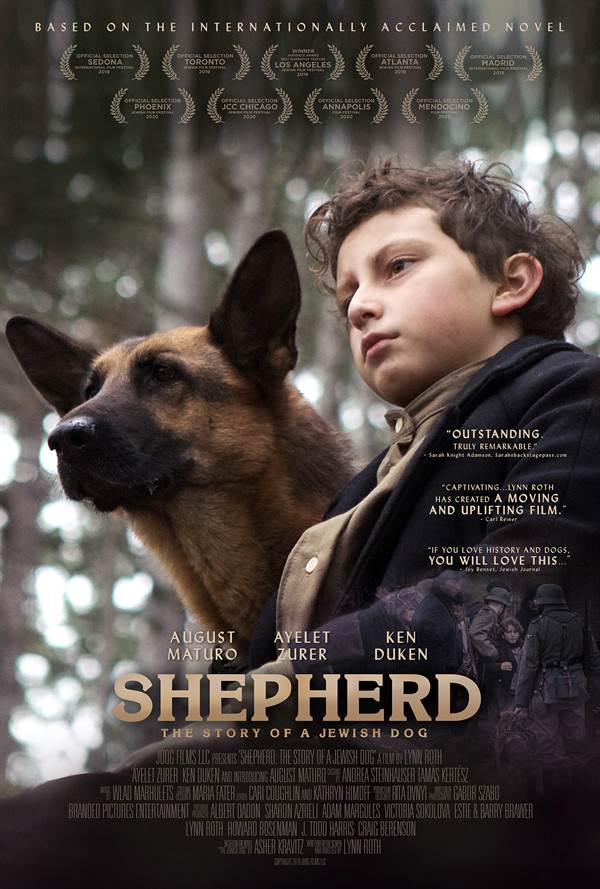
On September 15, 1935, in Nuremberg, Germany the Nazi Party enacted laws that were both antisemitic and racist. The laws included the prohibition of interracial couples and intercourse between Jews and non-Jews. They marked the beginning of the persecution of German Jews leading to them losing their jobs, their homes and, after being forced into the concentration camps, their lives as mass exterminations of those in the camps were gassed, shot, and starved to death. The Nuremberg Laws also stated that Jews could not have pets, and those who owned them had to give them away. Shepherd: The Story of a Jewish Dog, based on the Asher Kravitz 2007 novel, illustrates the bond between a boy and his dog.
When Joshua's (August Maturo; The Nun) family dog had a litter of puppies, most of them were given away except Kaleb. The puppy became Joshua's best friend until they were forced to give him and his mother away. Since the enactment of the Nuremberg Laws, pets were being given away or abandoned, Kaleb included. However, when Kaleb ran away from his new owner, he ran back to Joshua only to discover the family was gone and a new family lived there. With nowhere else to go, Kaleb lives as a stray until he is captured and sent to the pound.
Adopted by an SS officer, Kaleb was trained to hunt Jews and eventually went to one of the concentration camps. One day, a new group of prisoners arrived, and Kaleb caught a familiar scent. Among those offloaded from the train, is Joshua. Sensing Kaleb's interest in Joshua, his new owner allows Joshua to care for the animals including Kaleb. However, when Joshua is caught stealing some of the food meant for the animals, he is about to be killed until Kaleb intervenes and saves him. Escaping from the camp, Joshua and Kaleb survive the wilderness and eventually make it to freedom.
The saying in Hollywood never works with children or animals and in this case, it's true. Maturo is pretty good considering his age but the dog (s) who plays Kaleb is probably the best actor in the whole film. His glances and barks make you realize he knows exactly what is going on around him and he reacts accordingly. Most of the cast is decent but there are moments when an actor says a line and internally you groan from the delivery.
This subject matter has always been difficult for me to watch as I typically find anything related to the Holocaust makes me angry and sad. However, because Shepherd focuses more on Joshua and Kaleb than the outrageous and illegal things that were done to the Jews, it downplays the devastation and almost sugar coats it in a way. While the idea of minimizing the torture and death of so many people made me furious, I was also grateful not to have to sit through an entire film full of such usually heavy subject matter.
Shepherd: The Story of a Jewish Dog sheds some light on how the Nuremberg Laws impacted a large part of the world and not just human lives. It speaks to the idea of the pets left behind when the Jewish people were forced from their homes and the love between a young boy and his dog. The bond between humans and pets, specifically dogs, can be difficult to sever and this film illustrates that in the largest possible way.
Even though the backdrop of the movie is the systematic annihilation of European Jews, the story of Joshua and Kaleb softens the material enough to be appropriate for younger audiences.
Grade: B



